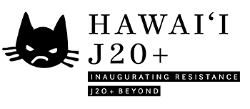Won't a sanctuary law disrupt the flow of federal funds to Hawai`i?
Question:
If Hawaii refuses to cooperate with Trump and his immigration policies, he will retaliate by withholding federal grants to Hawaii. Why should Hawai`i unnecessarily put hundreds of millions of federal dollars at risk?
Background:
Actually, very little federal funding would be at risk, because federal law allows grant moneys to be withheld only when a state does not comply with the requirements of that particular grant. The federal government must take care not to coerce states by withholding funds.
There is only one federal grant related to law enforcement, the Edward Byrne Memorial Justice Assistance Grant (JAG) Program. Hawaii receives a relatively small amount from the Byrne JAG program. Hawaii’s allocation for FY 2017 was $840,284.00. Of this total, the Department of Attorney General will receive $504,170.40 and $336,113.60 will be directly awarded to the counties. The state portion of the Byrne JAG grant represents 0.6% of the Department of Attorney General’s operating budget.
The Federal Department of Justice (DOJ) under Attorney General Sessions has attempted to attach conditions to the Byrne JAG grant. These conditions seek to expand state and local government requirements to cooperate with the federal government in its efforts to enforce federal immigration laws. In September, 2017 a federal judge in Chicago granted a nationwide injunction against these conditions, holding that it was likely AG Sessions had exceeded his authority by imposing them.
It should be noted that, despite Hawaii’s high-profile challenge to Trump’s Muslim travel ban, the federal budget proposed by Trump would actually increase total federal funding for Hawaii.
Answer:
The federal government is barred by law from coercing states in this way. The Trump administration might threaten to withhold funds, but such a threat would be a bully’s bluster. In any event, the amount of federal funding in question is not great. It represents less than 1% of the State Attorney General’s annual budget.



